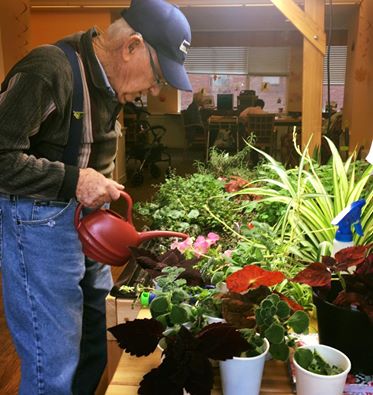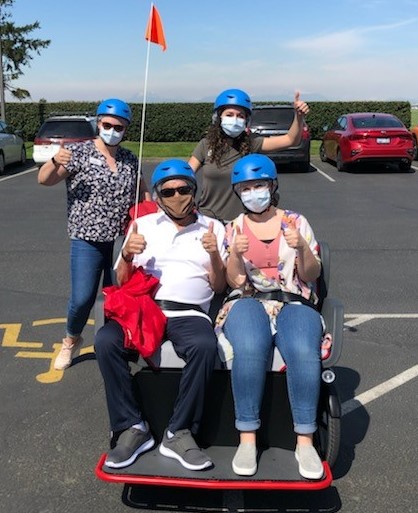You are not alone.
That’s one major theme of Mental Health Awareness Month, celebrated throughout May.
Mental illness affects one in five adults in the United States (including one in five older than 55), with about five percent experiencing serious mental illness.

Among the elderly, mental illness can have devastating effects.
According to a report from the Centers for Disease Control and Prevention, older men have the highest suicide rate of any age group, with men 85 years and older having a suicide rate four times that of the general population.
“The impact of depression on health in older adults can be severe,” says the National Institute of Mental Health. “Much research has reported that depression is associated with worse health in people with conditions like heart disease, diabetes, and stroke.”
Negative emotions also can lead to poor immune health — however, it’s important to note that the opposite also is true: Positive thoughts can be beneficial to health.
Helping an older adult improve their mental health starts with being aware of potential mental health problems, so it is important to recognize the warning signs. Here are some of them, according to the NIMH:
- Changes in mood, energy level or appetite
- Difficulty feeling positive emotions
- Sleeping poorly or sleeping too much
- Trouble concentrating
- Feeling restless or on edge
- Increased feelings of stress or worry
- Anger, irritability or aggressiveness
- Ongoing headaches, digestive issues or pain
- Obsessive thinking or compulsive behavior
- Unusual thinking or behaviors that concern other people

As we shine a light on Mental Health Awareness Month, let’s pay close attention to the elderly in our lives and resolve to offer support in whatever way we can. Let’s resolve to ensure that senior parents, grandparents, friends and neighbors do not feel isolated and alone.
Pick up the phone. Stop by for a visit. Take them a meal or invite them out for coffee. Encourage them to join a local senior center or help them find ways to add purpose and meaning to their lives (example: volunteering). Be a consistent presence in their life, someone who can offer support and encouragement.
At Christian Health Care Center, our team of social workers, nurses and therapeutic recreation specialists help monitor the mental health and well-being of all people who receive care here — intervening in proactive ways — to ensure that everyone feels supported and included.
If you notice an ongoing concern related to mental health, talk with your loved one and schedule a visit for you both to meet with his or her personal care physician. You just might be able to bring about positive change and help improve the mental health of someone you love.
